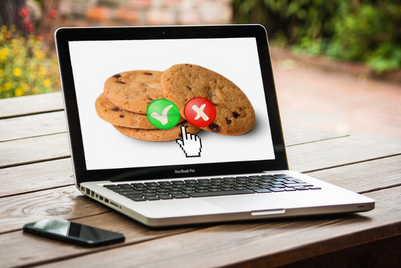Speaking on day 10 of the I-Com Summit Experience (the digital version of the I-Com Global Summit), Louis DiCesari, global commercial head of data, analytics and AI, Levi Strauss & Co., UK, elaborated on how he sees privacy regulations as a welcome change.
He said, “It [privacy regulations] has forced companies to articulate the benefit of consumers opting in [for data to be shared]. It's clear and easy to understand the wordings of the policy. I don't see a big tension there if you approach it the right way. Consumer consent has actually gone up. We have made policies more consumer-friendly and have given consumers value in exchange for them sharing their data.”
DiCesari was part of the session titled ‘Digital transformation in loyalty and customer experience’ which was moderated by Jason Brush, EVP product and service design, Head of Innovation, Wunderman Thompson, USA.
He also explained how Levi’s was using data and artificial intelligence (AI).
“AI reports into the strategy function at the company. For direct-to-consumer, we use AI and data to deliver deep personalisation. For wholesale, we use AI and data to create strong partnerships. We also use it for operational efficiencies,” said DiCesari before listing three initiatives the company entered on the back of data used.
“One, we personalised the website. We recommend style recommendations basis their (consumers) click patterns. We helped consumers close the gap to reach free shipping. This was a data analytic insight used from abandoned carts. This has helped more people complete their shopping and we also have a model to help consumers finding the most relevant reviews for their questions on a specific product,” he said.
“Next were our ship-from-store capabilities. While our stores were closed due to COVID-19, we used them to ship our online orders. 30% of our sales were shipped by our stores in the US in May leading to a 77% rise in efficiency. One of the benefits of this was reduced transportation cost.
And third was the promotion optimisation. COVID presented challenges but there were also opportunities. One of them was using a data-driven approach to turn our website to create Amazon type of promotions to generate better price elasticity. During a major e-commerce promotion, we got sales of four times of what we got in the previous year. We used this in China on Singles Day (11-11) and will also have it for Black Friday (27 November).”
DeCesari ended his talk by adding how the company used data during the pandemic. “Data has never been more critical. We also used data to figure the right time to open stores. And lastly, we reviewed the demand to move inventory and predicted consumer demand sentiment during and after lockdowns,” he said.





.jpg&h=334&w=500&q=100&v=20250320&c=1)



.jpg&h=334&w=500&q=100&v=20250320&c=1)
.jpg&h=334&w=500&q=100&v=20250320&c=1)


.jpg&h=334&w=500&q=100&v=20250320&c=1)








